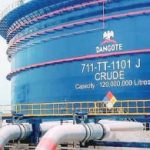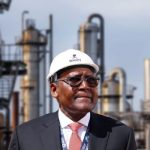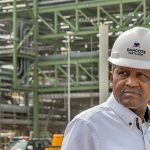In a bid to address growing apprehensions among Nigerians, the Nigerian National Petroleum Company Limited (NNPCL) has vehemently denied any intentions of hiking fuel pump prices at its retail stations. The company’s reassurance comes at a time when speculations have been rife about an imminent fuel price surge, prompting concerns across the nation.
Taking on its official Twitter account late Monday night, NNPC Retail issued a statement affirming its commitment to customers:
“Dear esteemed customers, we at NNPC Retail value your patronage, and we do not have the intention to increase our PMS pump prices as widely speculated. Please buy the best quality products at the most affordable prices at our NNPC Retail Stations nationwide.”
This announcement arrives in the wake of reports suggesting that fuel pump prices could soar to around N700 per litre. These predictions stem from the steady rise in oil marketers’ landing costs, which surged by 37.4% to N632.17 per litre in July 2023, compared to N460 per litre in June 2023.
A breakdown of the cost components reveals a product cost per litre at N578.46, freight (Lome-Lagos) at N10.37, port charges at N7.37, NMDPRA levy of N4.47, storage cost at N2.58, Marine insurance cost at N0.47, fendering cost at N0.36, and “others” at N0.05. Additionally, a finance cost of N28.04 is factored in.
This analysis underscores that the landing cost of 28,000 metric tons of imported petrol exceeds $25 million, encompassing total product cost, total direct cost, and total finance cost. Despite generating over N22 billion in sales revenue, the transaction points to a staggering loss of over N1.6 billion.
In a parallel development, the Nigeria Labour Congress (NLC) has issued a stern ultimatum, threatening an all-encompassing nationwide shutdown if the pump price of petrol escalates beyond the existing N617 per litre. This threat, deemed unlawful by the NLC, has stirred debates about the affordability of fuel and the potential impact on citizens.
During the African Trade Union Alliance meeting on August 14, Joe Ajaero, the President of NLC, underscored the workers’ determination:
“As we’re here now, they’re contemplating increasing the pump price of petroleum products. And the Ministry of Labour, for some time now, will only go to the Ministry of Justice to come up with a so-called injunction to hold the hands of labour not to respond. But let me say this, Nigerian workers will not give any notice if we have not addressed the consequences of the last two increases and we wake up from our sleep to hear that they have tampered with it again — the prices.”
Furthermore, oil dealers have raised concerns about the insufficiency of the Central Bank of Nigeria’s (CBN) I&E official foreign exchange rate to facilitate the required $25 million to $30 million for petrol importation. This scarcity has culminated in the suspension of petrol importation by dealers, who are now grappling with the unforeseen challenges of the commodity’s acquisition.









